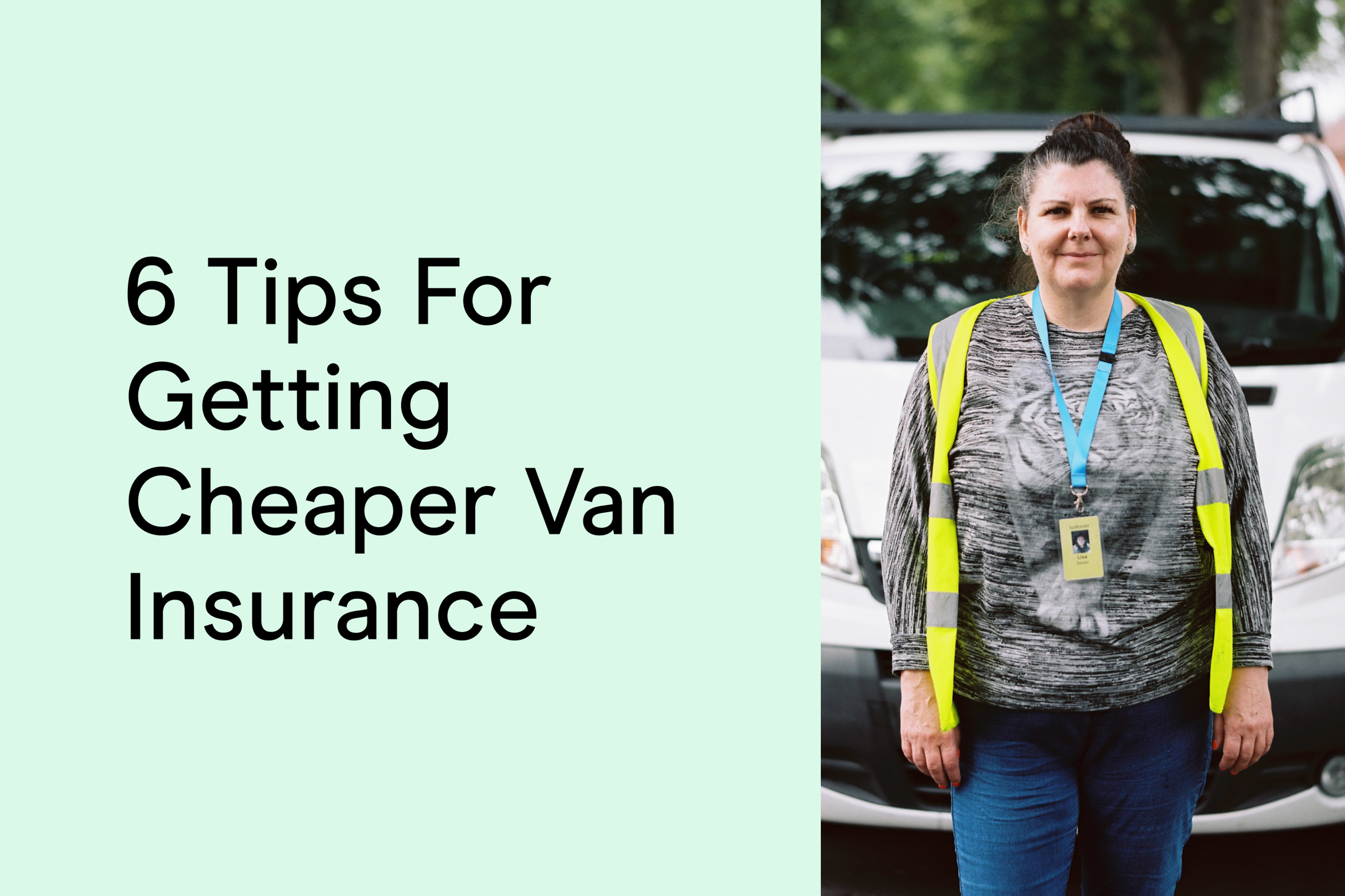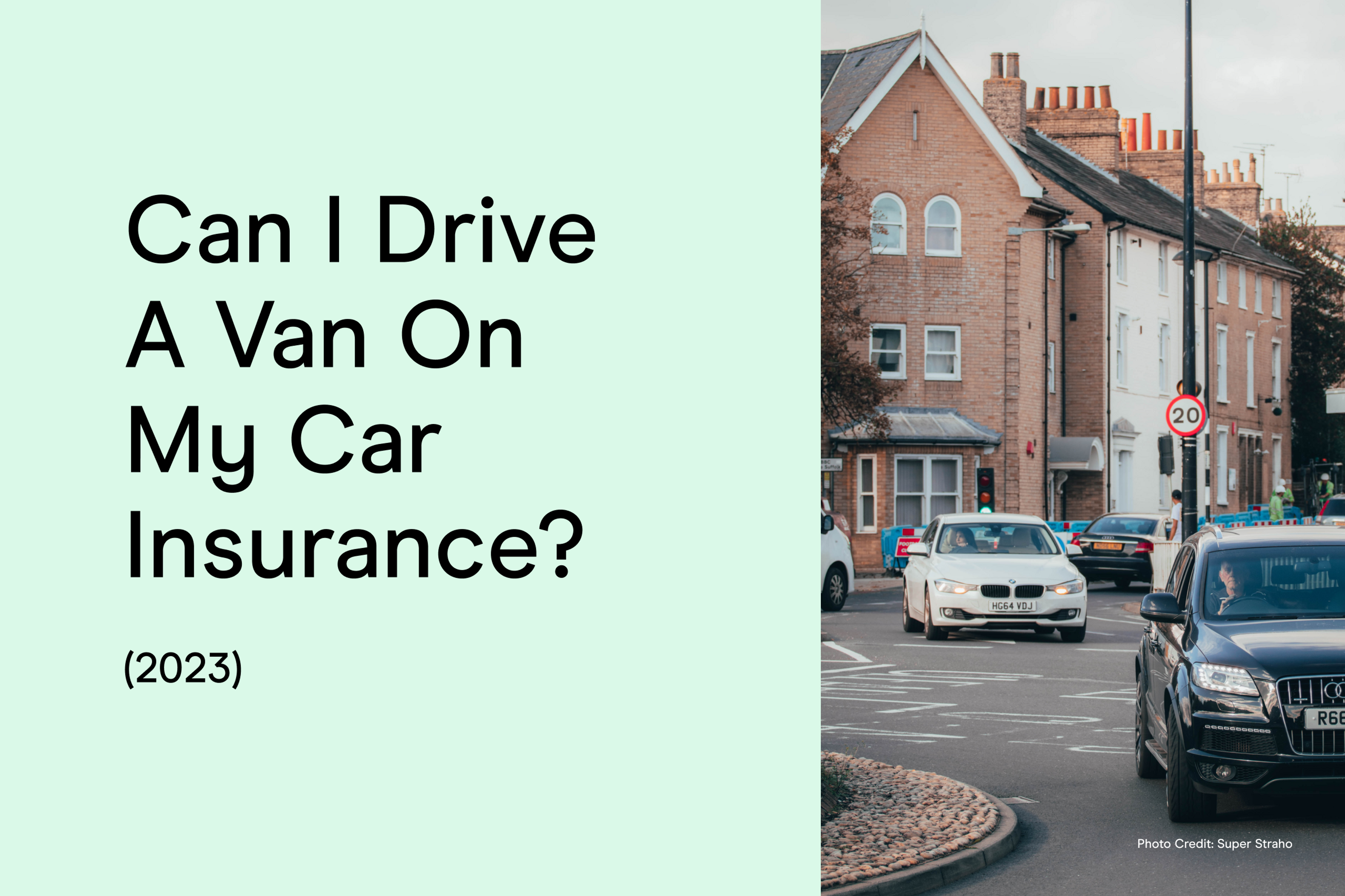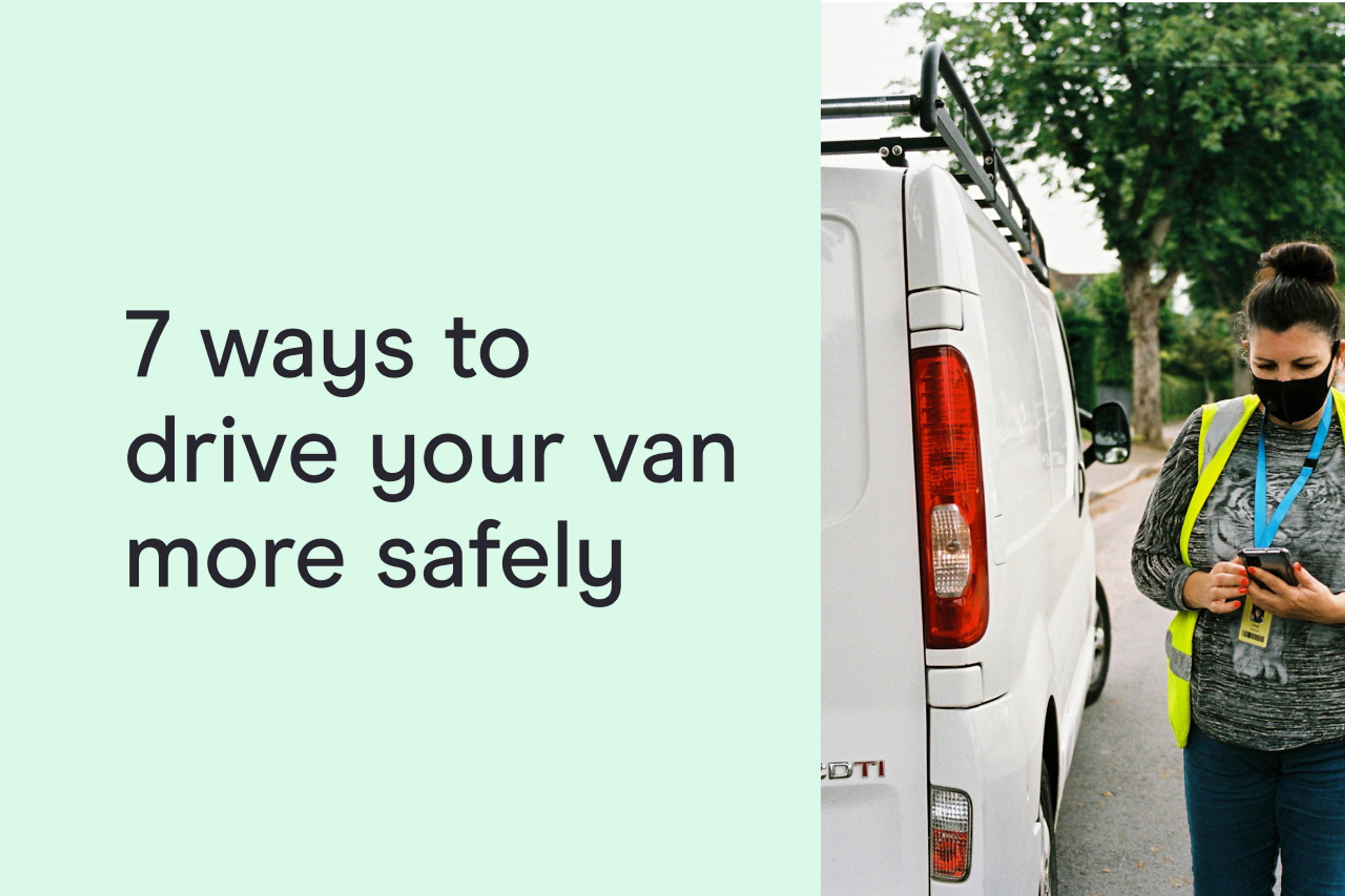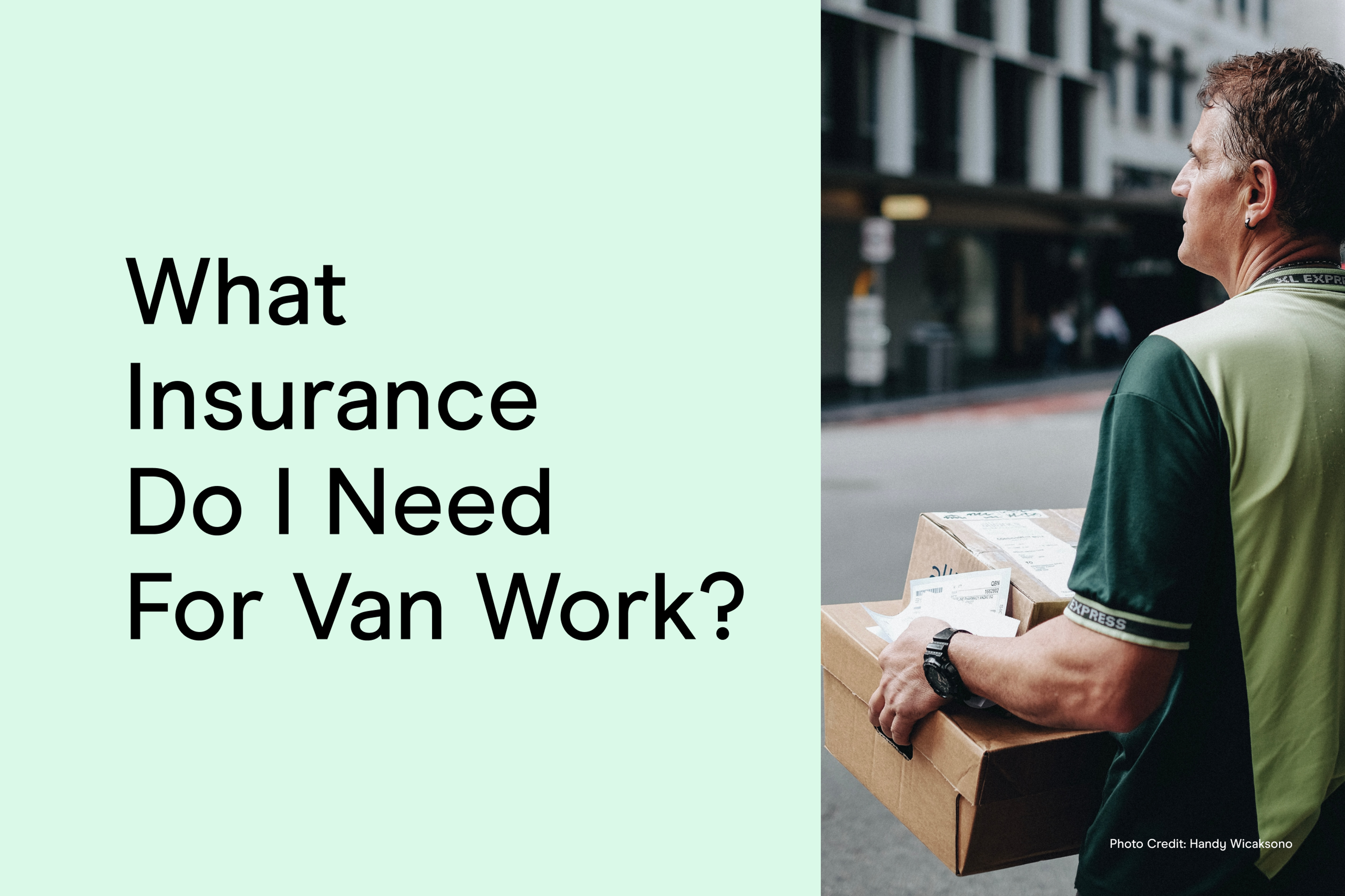Choosing the right van insurance can be difficult, especially when you’re looking for a policy that doesn't cost a fortune.
As a van driver, you might be interested in ways you can reduce your business van insurance costs. The good news is, there are a few things you can do to get a cheaper van insurance policy.
Here are a few tips to get you started.

1. Choose the right van
When it comes to van insurance, the size and power of your vehicle can make a big difference to the amount you pay. Larger vans, particularly those with more powerful engines, are usually more expensive to insure. This is mostly due to the increased risk associated with these vehicles – they can cause more damage in an accident, and their parts are often more expensive to replace.
If you're in the process of buying a new van, or thinking about upgrading your current one, it's important to weigh the benefits of a larger, more powerful van against the potential increase in insurance costs. For many business van drivers, a smaller van can still do the job, without the added expense of higher insurance prices.
Before making a decision, consider the type of work you do, the goods you transport, and the distances you typically travel. If a smaller van can handle your work, it could be a wise choice for keeping your business van insurance costs down.
2. Boost your van's security
Increasing your van's security – installing advanced features like an alarm system, immobiliser, or a tracking device – can lead to substantial savings on your insurance.
These extra security measures not only deter thieves, but also signal to insurance providers that your van is a lower risk, which could result in a lower insurance cost. Remember, the cost of these upgrades can often be offset by the savings on your insurance over time.
3. Check your insurance group
In the UK, vans are categorised into different insurance groups, which insurers use to help determine the prices they charge. These groups are numbered from 1 to 50, with Group 1 being the cheapest to insure and Group 50 being the most expensive.
The insurance group of a van is determined by lots of different factors, including the cost of parts, the overall cost to repair the van, type of van, its performance, engine size, weight, and standard security features. The higher the insurance group of your van, the more you're likely to pay to insure it.
If you're looking for a new van, it helps to research and understand these insurance groups before you make a purchase. Choosing a van in a lower insurance group can result in significant savings on your insurance. This is particularly true if you're a younger driver or have points on your licence, as these factors can already contribute to higher insurance costs.
Remember, while it's important to find a van that suits your business needs, it's just as important to consider the ongoing costs of keeping and running your vehicle. A bit of research can go a long way towards paying less over the long run.
4. Increase your voluntary excess
The voluntary excess on your insurance is the amount you agree to pay towards any claim you make. If you’re able to increase your excess amount, you can help to reduce your insurance premium (your overall insurance cost).
Before choosing a higher excess, it's important to consider the total cost to you in the event of a claim. If you're involved in an accident, you’ll have to pay that larger sum before your claim can be processed. So it's a good idea to check that you can comfortably afford it, either now or in the future.
5. Use your no claims bonus
A no claims bonus, also known as a no claims discount (or NCD), is a clever way to reduce your insurance premiums. The bonus works by giving you a discount for every year you drive without making a claim. It’s essentially a reward for safe and careful driving.
Some insurers even allow you to transfer a no claims bonus from another vehicle, giving you a head start on potential savings. So before you decide on an insurer, it's worth checking their policy on no claims bonuses and discounts for safe driving.
6. Pay annually
Choosing to pay your insurance on an annual basis, rather than monthly, can help to lower the costs. That’s because many insurers offer discounts to customers who pay their premiums in one lump sum at the start of the policy term.
When you choose to pay monthly, it’s a bit like getting a loan from your insurance company for the annual cost of your policy, which you then pay back over 12 months. This loan often comes with interest and service charges, which can add up over the year. By paying your insurance upfront, you avoid these charges, helping to reduce the overall cost of your insurance.
So while it does involve a larger upfront cost, paying annually can save you a good amount of money over the long term.
Looking for van insurance?
Plus, choose a Sense policy and save money when you drive well.
Frequently asked questions
What Are the Cheapest Vans to Insure?
When choosing the right van insurance, it’s important to consider the type of van you drive, as certain models can be more affordable to insure. We provide insurance cover for a wide range of popular van models, ensuring you can find a policy that suits your needs. Here are some of the cheapest vans to insure in the UK.
- Ford Transit insurance - Ideal for those who need a reliable and spacious work vehicle.
- VW Transporter insurance - Perfect for business owners who value efficiency and versatility.
- Peugeot Expert insurance - A great choice for those looking for a balance between size and functionality.
- Mercedes Vito insurance - Known for its premium quality and robust performance.
- Mercedes Sprinter insurance - Ideal for larger operations requiring ample load space.
- Citroën Berlingo insurance - A compact van, perfect for urban deliveries and small business needs.
Each of these vans offers different benefits depending on your specific business requirements. By choosing the right van and the right insurance policy, you can ensure that your business is well-protected while potentially lowering your insurance costs.
How can I get cheaper van insurance?
Finding cheaper van insurance is possible if you follow a few simple steps. First of all, try choosing a smaller, less powerful van. Understand your van's insurance group, and invest in a few extra features to boost your van’s security.
If you’re able to, choose a higher voluntary excess, and be sure to build your no claims bonus. Finally, try to pay for your policy upfront for the year – it can save you a good amount of money over the long run.
Why is van insurance more expensive?
Van insurance can be more expensive than standard car insurance. That’s because vans are larger than cars, they can cost more to repair, and they tend to be used for business purposes. A work van will also usually drive more miles in a year than a car. However, by following the steps covered in this guide, it's possible to find a cheaper van insurance policy.
Does improving my van's security lower my insurance costs?
Yes, in most cases extra security features in your van can lead to lower insurance premiums. Installing advanced features such as an alarm system, immobiliser, or a tracking device can deter thieves and signal to insurance providers that your van is a lower risk.
If I pay my van insurance annually, can I save money?
Yes, paying your van insurance upfront for the year (rather than monthly) can save you money. Many insurance providers offer discounts to customers who pay their premiums in one lump sum at the start of the policy. While it does involve a larger upfront cost, paying annually can save you a good amount of money over the long run.
Get the Right Insurance for Your Van
If you rely on your van for work or personal transport, choosing the right van insurance ensures you’re fully covered while keeping costs down. Whether you need commercial van insurance for business use, or a policy designed for personal driving, Zego offers flexible cover to fit your needs.
- Van insurance – Comprehensive cover for individuals using a van for daily transport.
- Commercial van insurance – Essential for business owners and self-employed drivers who use their vans for work.
- Personal van insurance – Cover for van drivers using their vehicle for social, domestic, and pleasure purposes.
- Car insurance – Protection for everyday driving, including personal use and commuting.
- New driver insurance – Flexible cover tailored for young and new drivers, rewarding safe driving with lower prices.
By choosing a van in a lower insurance group, adding security features, and maintaining a no claims bonus, you can help reduce your premium costs. With Zego, you get flexible, affordable cover that fits your needs—so you can focus on driving with confidence.


